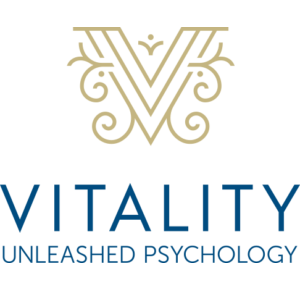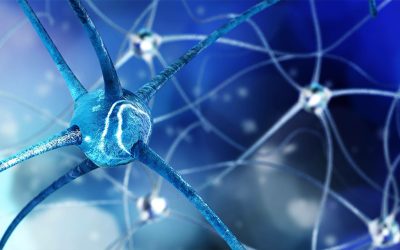Bipolar Disorder
Bipolar Disorder
Written by: Ashley Gilmour
Clinical Psychologist
Bipolar Disorder is a serious mental health condition that is often
misunderstood and confused with emotional dysregulation.
Read below to learn more about the features of Bipolar Disorder and treatments available.
What are bipolar affective disorders?
It is a common misconception among the community that a ‘Bipolar Disorder’ (which was formerly called ‘manic-depressive disorder’ in the 19th century) is the experience of mood instability (referred to as mood liability), where you might be feeling happy then sad, then angry and the moods change fairly quickly etc. However, Bipolar Disorder is much different. Bipolar disorder is a serious mental health condition that consists of manic or hypomanic episodes, and depressive episodes which causes unusual shifts in mood, energy, activity levels, behaviour, thought patterns, and at times changes to perceptual disturbances, which results in difficulty in the person’s ability to carry out their usual day-to-day tasks.
Bipolar Affective Disorders affect approximately 1-5% of Australians in their lifetime and this condition is reported to often go undiagnosed for approximately 10-20 years from onset of the first mood episode. This is typical because people with Bipolar Disorders tend to only seek treatment when they are experiencing a depressive episode, however do not tend to seek treatment when they are experiencing a manic or hypomanic episode for a few reasons: during a manic or hypomanic episode, there tends to be a lack of insight by the individual that they are unwell, even if family, friends or others raise concern about their mental wellbeing; the manic or hypomanic episode can at times be a pleasant experience to the sufferer when their mood is euphoric that they do not tend to want to seek help.
Bipolar Disorders average age of onset is late teens to mid-20’s, however, onset can also occur in childhood. Majority of people with Bipolar Disorder tend to experience more than one mood episode in their lifetime.
Clinical depression is categorized as a Mood Disorder. apart from this, it is referred to as ‘Unipolar Depression’. For a few people, their depressive indications stay at a sub-clinical seriousness which implies that they encounter some depressive side effects, yet the range, seriousness as well as the span of their depressive manifestations isn’t extreme enough to be delegated a clinical depression.

What are the types of bipolar disorders?
There are a few different types of Bipolar Disorders, which either comprise of manic episodes or hypomanic episodes and major depressive episodes. There are many symptoms of manic and hypomanic episodes which are similar. However, the required symptoms, severity, and duration of symptoms and impairment in functioning will determine whether the episode is a manic episode or a hypomanic episode, and thus will determine the type of Bipolar Disorder that is diagnosed. The main types of Bipolar Disorder are:
- Bipolar I Disorder
- Bipolar II Disorder
- Cyclothymic Disorder
WHAT ARE THE TYPICAL SIGNS & SYMPTOMS OF BIPOLAR DISORDERS?
Symptoms of a manic & hypomanic episode can include:
- A persistent happy or euphoric mood that is markedly different from usual and is an excessive reaction to a positive situation
- A distinct period of irritable mood that persists
- Increased engagement in activities, such as taking on new projects
- Not completing projects that you have started
- Inflated sense of self-esteem or feeling ‘grandiose’ (increase in confidence)
- Talking much faster than usual or feeling a pressure to keep talking
- Having racing thoughts and jumping from one idea to another that people tend to find it difficult to follow what you are talking about
- Easily distracted by things that are not important
- Being overly restless and agitated
- Sleeping little or not being tired even with a very small sleep (e.g., feeling rested after 3 hours of sleep)
- Increase in engagement in purposeless activity with no clear direction or plan
- Behaving impulsively and engaging in pleasurable, high-risk behaviors without regard for the damage that these behaviors could cause to self or
- others (e.g., excessive spending sprees, indiscriminate sexual encounters)
- Daily hygiene can also change such as not showering, brushing teeth
- The person can also become itinerant during this time e.g., leaving town without any plan
- Psychotic symptoms (delusions) can also at times be present
Symptoms of depression or a depressive episode include:
- An overly long period of feeling depressed, sad or hopeless
- Tearful more than usual
- Loss of interest in activities once enjoyed, including intimacy.
- Feeling tired or “slowed down”
- Sleep disturbance
- Appetite disturbance
- Having problems concentrating, remembering, and making decisions
- Being restless or irritable
- Feeling worthless
- Thinking of death or suicide, or attempting suicide.
To read more about Major Depression, click here

WHAT ARE PSYCHOTIC SYMPTOMS?
Delusions
What is a delusion? This is a false belief that a person holds as 100% truth while at the same time is not subject to reason or contradictory evidence and is not explained by a person’s usual cultural and religious concepts. A delusion may be firmly maintained in the face of irrefutable evidence that the belief is false.
Common types of delusions that can occur during a manic episode are:
- Grandiose delusions:
In this type of delusion, the person believes that they possess special and unique gifts or powers that others do not have, or that they have access to information that is hidden from others. This type of delusion is the most characteristic of a mania and is said to be ‘mood congruent’.
Examples: Having a belief that they are a king, are really Jesus, or that they can cure the sick, that they are a multi-millionaire or a world-known artist, or that they have the power of telepathy.
- Persecutory delusions:
In this type of delusion the person believes that people are after him or her to harm themselves or to someone, they know in some kind of way. Although it can occur in mania, this type of delusion can also be seen in other psychotic illnesses and is therefore not diagnostic of bipolar disorder per se.
Example: Believing people are following them as they walk down the street, or that someone is out to hurt them or someone they know.
- Paranoia
Basically, iis a psychological condition described by delusions of persecution, outlandish desire, or exaggerated self-importance, ordinarily worked into a sorted out framework. It might be a part of the incessant identity issue, of drug abuse, or of a genuine condition, for example, schizophrenia in which the individual puts some distance between the real world. In mania, these individuals may tend to have the paranoia about other people having doubt about their capabilities or accomplishments.

WHAT CAUSES BIPOLAR DISORDER?
The exact causes of Bipolar Disorders are not clear. However, research indicates this condition is due to an interaction between faulty neurobiological systems (e.g., neurotransmitters which are our chemicals in our brain), genetic vulnerability, environmental factors (e.g., stressors such as financial, divorce). Bipolar Disorder can be triggered by life stressors.
How can bipolar disorder be treated?
Bipolar Disorder Treatment
HOW CAN BIPOLAR DISORDER BE TREATED?
Treatment of Bipolar Disorder is more about management to minimize the severity and frequency of mood episodes, rather than curing, due to the biochemical nature of the condition. It is important to form a good team of practitioners as part of your treatment including a: Clinical Psychologist, Psychiatrist, GP, and social support services.
Depending on your needs, treatment may include:
- Initial treatment. Often, you’ll need to commence mood stabilizing medications to balance your moods immediately. Once your symptoms are under control, you’ll work with your doctor to plan on-going maintenance treatment to prevent relapse.
- Continued treatment. Bipolar disorder needs long-term treatment with a Clinical Psychologist, Psychiatrist, and GP, even during periods when you are not facing any kind of problem or feel better. Maintenance treatment is used to manage bipolar disorder for a long period. Individuals who do not participate in maintenance treatment are at high risk of a relapse of symptoms such as having minor mood changes that turn into full-blown mania or depression.
- Substance abuse treatment. In the event that you have issues with alcohol or drugs, substance abuse treatment will likewise be critical, else, it tends to be extremely hard to oversee Bipolar Disorder.
- Your doctor may prescribe hospitalization if you are behaving perilously, you feel self-destructive or you become detached from the real world (psychotic). Getting treatment at a hospital can help keep you quiet and safe and balance your state of mind regardless of whether you’re having a hyper or significant depressive scene.
An effective maintenance treatment plan usually involves a combination of medication and psychotherapy.
HOW CAN WE HELP?
If you know someone who is manifesting the symptoms mentioned, the most important action you can do to help them is to guide them the right diagnosis and treatment. If you yourself have an existing diagnosis of Bipolar Disorder, on-going maintenance with a Clinical Psychologist to prevent relapse is also important.
Ashley Gilmour is a Clinical Psychologist. Assessment, diagnosis, and treatment of Bipolar Disorder are the three things for which, Ashley is famous for. We are able to help you manage your symptoms with an evidenced-based psychological approach.
Vitality Unleashed Psychology provides Bulk-Billing psychology consultations to individuals with a Mental Health Care Plan from their GP. To find out more information about psychology treatment for Bipolar Disorder and other psychological conditions under Medicare, click here.
To make an inquiry about how we can help you or to book an appointment over the phone, call us on 07 55743888.
If you prefer to book an appointment online, please click on the button below:
Latest blog articles
Send us a message! We’d love to hear from you
We will respond to your enquiry during our reception hours Monday to Friday (Closed Public Holidays & Weekends).
At Vitality Unleashed Psychology, our patients’ experience is our priority.
We are happy to assist you with any questions or enquiries you may have, so contact us today! We will get back to you as soon as possible.









